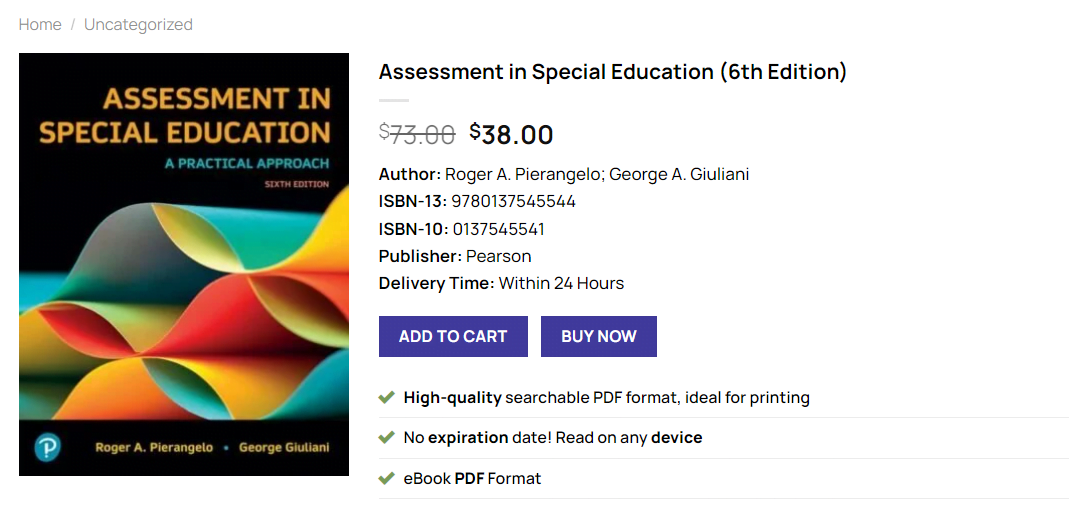Assessment plays a crucial role in special education, helping educators understand the unique needs and abilities of students with disabilities. In the 6th edition of “Assessment in Special Education,” the focus is on providing a comprehensive guide to assessment practices that are effective and meaningful for students with special needs. This article will explore the key concepts and strategies covered in the book, highlighting the importance of assessment in supporting the learning and development of these students.
Assessment in special education serves multiple purposes, all aimed at improving the educational experience for students with disabilities. One of the primary goals is to identify and diagnose specific disabilities and learning challenges. By understanding the unique needs of each student, educators can develop individualized education programs (IEPs) that address those needs effectively.
Assessment also helps measure students’ progress and growth over time. It provides valuable data to evaluate the effectiveness of instructional strategies and interventions, enabling educators to make informed decisions about the best approaches for supporting student learning.
Furthermore, assessment plays a vital role in determining eligibility for special education services. By assessing a student’s strengths and weaknesses, educators can determine if they meet the criteria for special education and related services.
Key Components of Assessment in Special Education
Assessment in special education involves various components that work together to provide a comprehensive understanding of a student’s abilities and needs. These components include:
1. Observations and Interviews
Observations and interviews are essential in gathering information about a student’s behavior, social skills, and communication abilities. By observing a student in different settings and interacting with peers and teachers, educators can gain insights into their strengths and challenges.
2. Formal and Informal Assessments
Formal assessments, such as standardized tests, provide objective data about a student’s academic achievement and cognitive abilities. Informal assessments, on the other hand, involve more flexible and individualized approaches, such as checklists, portfolios, and performance-based assessments. Both types of assessments are valuable in understanding a student’s overall progress and areas of need.
3. Collaboration with Parents and Professionals
Collaboration is a critical component of assessment in special education. By working closely with parents, educators can gain valuable insights into a student’s strengths, challenges, and preferences. Additionally, consulting with other professionals, such as speech therapists, occupational therapists, and psychologists, can provide a more comprehensive understanding of a student’s needs and inform the assessment process.
Effective Assessment Strategies
The 6th edition of “Assessment in Special Education” introduces several effective assessment strategies that can be used to support students with disabilities. These strategies include:
1. Authentic Assessment
Authentic assessment focuses on real-life tasks and situations, allowing students to demonstrate their skills and knowledge in meaningful contexts. This approach provides a more accurate representation of a student’s abilities and can help identify areas for further development.
2. Universal Design for Learning (UDL)
UDL is an instructional framework that aims to provide multiple means of representation, engagement, and expression for all students, including those with disabilities. By incorporating UDL principles into assessment practices, educators can ensure that assessments are accessible and meaningful for students with diverse learning needs.
3. Progress Monitoring
Progress monitoring involves regularly assessing a student’s performance to track their progress over time. This approach allows educators to make data-driven decisions and adjust instructional strategies as needed. By monitoring progress, educators can ensure that students are making meaningful gains and receiving the support they need to succeed.
Conclusion
Assessment in special education is a complex and essential process that supports the learning and development of students with disabilities. The 6th edition of “Assessment in Special Education” provides valuable insights and strategies for conducting effective assessments. By understanding the purpose of assessment, the key components involved, and implementing evidence-based strategies, educators can create meaningful and individualized learning experiences for students with special needs.

